|
As a biotech firm, you're at the forefront of innovation, developing cutting-edge products and technologies that transform lives. However, this pioneering work comes with unique risks. To safeguard your business, intellectual property, and employees, you need tailored insurance coverage. In this blog, we'll explore three essential insurance coverages biotech firms can't do without:
1. Product Liability Insurance Biotech firms develop and manufacture complex products, such as pharmaceuticals, medical devices, and biologics. Product Liability insurance protects your business in case these products cause harm or injury to patients, users, or consumers. This coverage is crucial, as even a single product recall or lawsuit can be financially devastating. 2. Intellectual Property Insurance Biotech firms invest heavily in research and development, generating valuable intellectual property (IP) such as patents, trademarks, and trade secrets. Intellectual Property insurance safeguards your business against IP infringement, theft, or misuse. This coverage helps you defend your IP rights, recoup lost revenue, and even pursue legal action against infringers. 3. Directors and Officers (D&O) Liability Insurance Biotech firms are led by boards of directors and officers who make strategic decisions that impact the company's success. Directors and Officers (D&O) Liability insurance protects these individuals from personal liability in case of lawsuits, regulatory actions, or other claims. This coverage is vital, as D&O claims can arise from allegations of wrongful acts, breach of duty, or negligence. Biotech firms face unique risks and challenges, but with the right insurance coverage, you can mitigate these risks and focus on driving innovation and growth. Don't leave your business exposed – consider investing in Product Liability, Intellectual Property, and D&O Liability insurance to safeguard your company's future. Protect your biotech firm today! The medical device industry plays a pivotal role in global healthcare by providing tools and technologies that diagnose, prevent, monitor, and treat a wide array of diseases and conditions. However, the development, manufacturing, and distribution of medical devices entail significant risks, necessitating comprehensive insurance coverage to protect against potential liabilities. Here are three critical types of insurance every medical device business should consider:
1. Product Liability Insurance What It Covers: Product liability insurance is essential for any business that designs, manufactures, or sells medical devices. This type of insurance protects the company if a product it sells causes bodily injury or property damage to a third party. Given that medical devices can directly impact patient health, the risks are particularly high. Product liability claims can arise from manufacturing defects, design flaws, or inadequate instructions/warnings. Why It’s Important: In the medical device field, even a small defect can lead to significant adverse outcomes for users. The costs associated with defending these claims and any resultant settlements can be astronomical. Product liability insurance helps ensure that a company can survive financially after such claims. 2. Professional Liability Insurance What It Covers: Also known as errors and omissions (E&O) insurance, this coverage is crucial for businesses involved in the service side of medical devices, such as providing training on equipment use, maintenance, or calibration. It protects against claims of negligence or harm that result from mistakes or failure to perform. Why It’s Important: Medical device businesses often provide highly technical and specialized advice and services. Errors in these areas can lead to serious consequences, potentially harming patients and exposing the business to liability. Professional liability insurance helps cover the legal costs and any damages awarded, protecting the company’s financial health. 3. Cyber Liability Insurance What It Covers: Cyber liability insurance is increasingly important for medical device companies, especially those involved in producing and managing devices connected to the internet or other networks (IoMT - Internet of Medical Things). This insurance covers the risks related to data breaches, cyber-attacks, and other technology-related vulnerabilities, including costs related to recovery, notification, legal fees, and any resulting fines or penalties. Why It’s Important: Medical devices often handle sensitive patient data, making them a target for cybercriminals. A breach can compromise patient privacy, result in regulatory penalties, and damage the company’s reputation. Cyber liability insurance helps mitigate these risks by providing financial and expert support in the event of a cyber incident. Navigating the complexities of the medical device industry requires a thorough understanding of the risks involved. By securing product liability, professional liability, and cyber liability insurance, medical device businesses can safeguard their operations, protect their financial stability, and maintain their reputation in a competitive and rapidly evolving market. Together, these insurance coverages form a robust shield against many of the common hazards these businesses face, allowing them to focus on innovation and growth with peace of mind. In the life sciences industry, we know you have to innovate to stay ahead. Companies in the industry compete and strive to be the first to develop new drugs, supplements, medical devices, and technologies that promote better health. Let us put together a specialized Life Sciences Insurance solution that minimizes loss potential and protect your bottom line. In today's litigious society, businesses face a significant risk from product liability claims, which can lead to substantial financial losses, damage to reputation, and even business failure. Product liability refers to the legal responsibility of manufacturers, distributors, and retailers for any injuries or damages caused by their products. Managing this risk effectively is crucial for any business involved in the production or sale of goods. Understand Your Legal Obligations Before diving into risk management strategies, it's vital to understand the legal framework surrounding product liability in your jurisdiction. This knowledge will guide your risk management policies and procedures, ensuring they are aligned with regulatory requirements and best practices in your industry. 1. Conduct Rigorous Testing Test your products thoroughly before launching them to identify and rectify potential hazards. This includes stress testing, usability testing, and ensuring compliance with industry standards. Regular testing of batches post-production can also catch issues before they reach the consumer. 2. Implement Quality Control Measures Establish strict quality control processes throughout the manufacturing and distribution phases. This includes regular inspections, auditing suppliers, and ensuring that all materials and components meet your safety and quality standards. Documentation of these processes is essential for demonstrating diligence in case of legal scrutiny. 3. Provide Clear and Comprehensive Instructions Many product liability claims arise from misuse due to inadequate instructions or warnings. Ensure that your products come with clear, easy-to-understand instructions for use, maintenance, and warnings about potential risks. Consider language barriers and use universal symbols where applicable. 4. Stay Informed on Industry Standards and Regulations Regulations and standards can change, and staying updated is crucial for compliance and risk management. Participate in industry associations, attend relevant conferences, and subscribe to updates from regulatory bodies. Compliance with current standards can significantly mitigate liability risks. 5. Engage in Proactive Customer Communication Maintain open lines of communication with your customers. Provide avenues for feedback and address complaints swiftly. If a product issue arises, a proactive recall or advisory notice can prevent injuries and demonstrate your commitment to customer safety, potentially mitigating liability. 6. Secure Adequate Insurance Coverage Despite your best efforts, the risk of liability claims can never be entirely eliminated. Ensure that your business has adequate product liability insurance to protect against potential claims. Regularly review your coverage to ensure it matches the scale and nature of your operations. 7. Document Everything Maintain meticulous records of your product design, testing, manufacturing, quality control, and customer communications. Documentation can be invaluable in defending against a liability claim, demonstrating your commitment to safety and due diligence. 8. Train Your Employees Ensure that all employees, especially those involved in design, manufacturing, and customer service, are trained in risk management practices. Regular training sessions can help instill a culture of safety and responsibility throughout your organization. Product liability claims can pose a significant risk to businesses, but by implementing these risk management tips, you can reduce the likelihood of claims and protect your business. Prioritizing safety in product design, adhering to quality control measures, providing clear instructions, and maintaining comprehensive insurance coverage are all essential steps in a robust risk management strategy. By fostering a culture of safety and responsibility, businesses can not only minimize the risk of liability claims but also enhance their reputation and customer trust. The reality of business, particularly in manufacturing and retail, product liability claims can be very detrimental. These claims arise when a product causes harm or injury to a consumer due to defects in design, manufacturing, or marketing. Not only can they lead to financial losses through legal fees and settlements, but they can also tarnish a company's reputation. Therefore, it's essential for businesses to prioritize risk management strategies to minimize the occurrence and impact of product liability claims. Here are three effective tips to achieve this:
Rigorous Quality Control and Testing Procedures: Quality control and testing procedures are fundamental in identifying and rectifying potential issues with products before they reach the hands of consumers. Implementing stringent quality control measures throughout the manufacturing process can significantly reduce the likelihood of defects. This includes regular inspections at each stage of production, from raw material procurement to final assembly. Additionally, investing in comprehensive product testing, including stress testing and safety assessments, can help identify any weaknesses or vulnerabilities in the product design or functionality. By ensuring that products meet or exceed industry standards and regulatory requirements, businesses can mitigate the risk of product-related injuries and subsequent liability claims. Clear and Comprehensive Product Documentation: Clear and comprehensive product documentation is essential for ensuring that consumers understand how to use a product safely and effectively. This includes user manuals, warning labels, and product specifications. Providing detailed instructions for assembly, operation, and maintenance can help reduce the likelihood of accidents resulting from improper use or negligence. Furthermore, prominently displaying warning labels and safety notices can alert consumers to potential hazards and risks associated with the product. By proactively communicating product information and safety guidelines, businesses can demonstrate their commitment to consumer safety and minimize the risk of liability claims arising from misuse or lack of awareness. Robust Customer Support and Recall Procedures: Despite best efforts to produce safe and reliable products, issues may still arise post-production. In such cases, having robust customer support and recall procedures in place is essential for effectively managing product-related incidents and mitigating potential liability. Establishing clear channels of communication, such as dedicated customer service hotlines or online support portals, allows consumers to report problems or seek assistance promptly. Moreover, implementing a structured recall process enables businesses to swiftly address safety concerns by removing defective products from the market and providing remedies or replacements to affected consumers. By demonstrating transparency, accountability, and responsiveness in addressing product issues, businesses can minimize the impact of incidents on consumer trust and loyalty while reducing the likelihood of costly legal battles. Product liability claims pose significant risks to businesses, both financially and reputationally. By implementing proactive risk management strategies, such as rigorous quality control and testing procedures, clear and comprehensive product documentation, and robust customer support and recall procedures, businesses can minimize the occurrence and impact of product-related incidents. Ultimately, prioritizing consumer safety and satisfaction not only protects businesses from liability claims but also fosters trust and loyalty in their brand. Strive Insurance Group, Inc. (formerly Gordon Lund Insurance Agency, Inc) is an independent insurance agency representing many insurance companies. This means that we quote with many different insurance companies to obtain the best rate and coverage for your insurance. We do this at no additional fee or service charge to you. Our insurance agency's reputation for representing the best insurance companies, providing excellent customer service and competitive pricing to our clients has been earned and proven for over 30 years. We take great pride in finding you the best coverage and backing it up with prompt personal service. The biotechnology industry, known for its ground-breaking research and innovation, is also a sector fraught with significant risks. From the uncertainties of research and development to the complexities of regulatory compliance, biotech firms navigate a landscape where the stakes are high. This is where insurance solutions play a pivotal role. Tailored insurance coverages can provide a safety net, mitigating the financial impact of various risks. Let’s explore the common risks faced by biotech firms and the corresponding insurance solutions that can help manage these challenges:
1. Research and Development (R&D) Uncertainties Mitigated by: Product Liability and Clinical Trial Insurance Risk Overview: The uncertain nature of R&D can lead to unexpected outcomes, including project failures or delays. Insurance Solution: Product liability insurance protects against claims related to product safety and efficacy. For clinical trials, specific insurance policies are available to cover the risks associated with testing on human subjects. 2. Regulatory Compliance Mitigated by: Regulatory Liability Insurance Risk Overview: Non-compliance with the myriad of regulations can result in legal and financial repercussions. Insurance Solution: Regulatory liability insurance can cover fines, penalties, and defense costs arising from regulatory actions, helping firms navigate legal complexities. 3. Funding and Liquidity Challenges Mitigated by: Business Interruption Insurance Risk Overview: Financial instability, often due to delayed or failed projects, can threaten a firm’s operations. Insurance Solution: Business interruption insurance can provide coverage for lost income and expenses during periods of unexpected downtime, ensuring financial continuity. 4. Intellectual Property (IP) Protection Mitigated by: Intellectual Property Insurance Risk Overview: IP breaches or disputes can lead to financial and reputational damage. Insurance Solution: Intellectual property insurance can cover legal costs associated with IP litigation, helping firms protect their most valuable assets. 5. Market Risks Mitigated by: Trade Credit Insurance Risk Overview: Market unpredictability can affect demand and profitability. Insurance Solution: Trade credit insurance protects against losses from unpaid invoices, providing security against market volatility and customer insolvency. 6. Ethical and Social Implications Mitigated by: Professional Liability Insurance Risk Overview: Ethical controversies or public backlash can lead to legal challenges. Insurance Solution: Professional liability insurance, including Errors and Omissions (E&O) coverage, can protect against claims of negligence or harm related to a firm’s services or products. In the biotech industry, a comprehensive risk management strategy is not complete without considering the right insurance solutions. These insurance policies provide a critical safety net, allowing biotech firms to focus on their core mission of innovation and development while mitigating the financial risks associated with their groundbreaking work. It is advisable for biotech firms to work closely with insurance professionals who understand the unique challenges of the industry, ensuring that their coverage meets their specific needs. Navigating the biotech landscape with the right insurance in place can make the difference between thriving amidst challenges and being overwhelmed by them. Remember, in biotech, the right insurance is not just a safety measure; it's an integral part of a successful business strategy. Strive Insurance Group, Inc. (formerly Gordon Lund Insurance Agency, Inc) is an independent insurance agency representing many insurance companies. This means that we quote with many different insurance companies to obtain the best rate and coverage for your insurance. We do this at no additional fee or service charge to you. Our insurance agency's reputation for representing the best insurance companies, providing excellent customer service and competitive pricing to our clients has been earned and proven for over 30 years. We take great pride in finding you the best coverage and backing it up with prompt personal service. Understanding Risks and Insurance Solutions
In today's complex business landscape, product liability looms as a daunting challenge for manufacturers, distributors, and retailers. Understanding the intricacies of product liability is not just a legal imperative but a crucial aspect of maintaining a sustainable business. This blog delves into the world of product liability, exploring its risks and the insurance solutions available to mitigate these challenges. Understanding Product Liability Product Liability Defined: Product liability refers to the legal obligation of businesses to ensure that their products are free from defects that could harm consumers. This responsibility can arise from manufacturing defects, design flaws, or inadequate warnings and instructions. Types of Product Liabilities Manufacturing Defects: These occur when a product departs from its intended design due to some error in the manufacturing process. Design Defects: Inherent flaws in a product's design that make it unsafe. Inadequate Warnings: Failure to provide clear instructions or warnings about the product's use. Real-Life Examples: The blog can include notable cases like the automobile recalls due to safety issues or lawsuits faced by pharmaceutical companies for undisclosed side effects. Risks Associated with Product Liability Financial Risks: Product liability can lead to substantial financial losses through legal settlements, compensation payouts, and recall costs. Reputational Damage: A product liability issue can irreparably damage a company's reputation, leading to lost customer trust and reduced market share. Operational Disruptions: Product recalls or legal proceedings can disrupt normal business operations, leading to significant losses. Global Considerations: Different countries have different product liability laws, posing additional challenges for international businesses. Insurance Solutions for Product Liability Types of Insurance Coverages:
Best Practices for Risk Management Quality Control: Implementing rigorous quality control measures is the first line of defense against product liability. Legal Compliance: Staying abreast of and complying with product safety regulations is crucial. Consumer Education: Clear labeling and instructions can significantly reduce liability risks. Proactive Recall Strategies: Having an effective recall strategy can mitigate risks and protect the company's reputation in case of a product defect. Understanding and managing product liability risks are critical for the longevity and success of any business involved in manufacturing or selling products. Assessing current risk management strategies and ensuring adequate insurance coverage are essential steps in this process. Additional Resources
As a business owner, you have a legal responsibility to ensure that your products are safe for your customers to use. However, even with the best intentions and strict quality control measures, accidents can still happen, and your business may be held liable for any damages or injuries that result from a faulty product. This is where product liability insurance comes in, as it provides protection for your business in the event of a product-related lawsuit. Product liability insurance is a type of coverage that specifically addresses the risks associated with manufacturing, distributing, and selling products. It can help cover the costs associated with legal fees, settlements, and judgments that may arise from claims related to product defects or failures. So, which businesses need product liability insurance? The answer is any business that manufactures, distributes, or sells products. This includes:
In conclusion, product liability insurance is an essential coverage for any business that creates, distributes, or sells products. It provides protection in the event of a product-related lawsuit, which can be costly and damaging to your business's reputation. As such, it is important to assess your business's risk and ensure that you have the appropriate level of coverage in place to protect your business and its assets. Product liability insurance is an essential type of insurance that helps protect businesses from the financial repercussions of legal claims related to their products. While not all companies may require product liability insurance, it is an important consideration for companies that produce and sell products. Here are three key reasons why businesses should consider product liability insurance: Protection From Legal Claims The primary reason for purchasing product liability insurance is to protect against legal claims arising from injuries or damages caused by a business's products. Even if a business takes all necessary precautions to ensure that its products are safe, accidents can happen. In the event that a customer is injured or property is damaged as a result of a product, the business may be held liable. This can result in costly legal fees, settlements, or judgments. Product liability insurance can help mitigate these costs and protect the business's financial assets. Compliance With Regulations Product liability insurance may be required by law or by the businesses' customers or suppliers. For example, businesses that sell products to government entities or large corporations may be required to have product liability insurance as part of their contract. Similarly, certain industries or products may require specific insurance coverage to comply with regulations. By having product liability insurance, businesses can ensure that they meet these requirements and avoid potential penalties or lost business opportunities. Peace Of Mind Finally, product liability insurance can provide peace of mind for business owners and operators. Running a business comes with many risks and uncertainties, and the potential for legal claims related to products can be a source of stress and worry. By having product liability insurance, businesses can rest assured that they have protection in place in the event of an accident or lawsuit. This can allow business owners to focus on growing their businesses and serving their customers. In conclusion, product liability insurance is an important consideration for businesses that produce and sell products. It can provide protection from legal claims, help businesses comply with regulations, and offer peace of mind for business owners and operators. While not all businesses may require product liability insurance, it is a valuable investment for those that do. 3/22/2023 Construction Defect ClaimsConstruction Defect is a phrase contractors do not like to hear.
Construction defect claims can be defined as damages resulting form faulty work or workmanship. Court decisions and state regulations make managing the risk of construction defects more than just prevention. Construction Defect Insurance The CGL policy underwent a major revision in 1986. The changes sought to clarify and to simplify the "property damage" exclusions. The changes were not, however, intended to change the exclusions meaning or effect. Not every policy is created equal. Make sure your contractors insurance does not have defect exclusions. “Now, an ‘occurrence’ is typically defined under a CGL as “an accident, including continuous or repeated exposure to substantially the same general harmful conditions.” In other words, a threshold coverage question is whether the Homeowners’ lawsuit alleges property damage caused by an occurrence.” Property Casualty360.com Legal battles will continue over whether construction defect claims are covered by commercial general liability policies. This will cause increases in the cost of contractors insurance. Construction Defect Risk Management
Business Insurance Trends The business insurance world is changing at a fast pace. Technology is continually evolving and businesses must change or die. New technology also brings change in claims and litigation. Often lawsuits filed today are indicators of business liability claims tomorrow. Business Insurance Business or commercial insurance coverage is available for almost every conceivable risk your business might face. The cost and amount of coverage of policies vary among insurers. Also the type of business you are in also impacts cost and coverage. You should discuss your specific business risks and the types of insurance available for your business with us. Future Business Insurance Risks Intellectual Property This is one of the fastest growing areas of litigation. The average defense cost in 2013 was over $500,000. With more information being disrupted over the internet, claims are sure to increase. Intellectual property insurance coverage protects companies for copyright, trademark or patent infringement, and claims arising out of the company's operation. Products Liability Insurance Products liability insurance covers a wide range of potential claims related to the sale and distribution of products. These include any injuries or losses due to design defects, manufacturing defects, inadequate instructions or warnings, improper packaging or labeling, breach of warranty, and other similar issues. In addition to covering the associated legal costs, it can also provide coverage for damages awarded by a court in such cases. This type of insurance is critical for businesses that produce, distribute, or sell products as it helps protect them from financial losses if they are held liable for an injury caused by their product. Healthcare Professional Liability As we move well into healthcare reform, we are seeing increased litigation focused on medical providers of all kinds. In 2012, litigation against OB/GYN doctors accounted for over $3.5 billion in claims. Many states have enhanced medical malpractice laws designed to speed up and compensate injured patients. Cyber attacks Recent news that Russian cyber thieves stole billions of passwords should create heightened awareness about the risks and need for cyber insurance. The problem, Munich Re explains, stems from the fact that “most traditional property and liability policies provide no cover for cyber risks” although there still may be a duty to defend until such time as coverage is determined. Social Media Social media is becoming popular with many businesses, and this increases the liability risks. The combination of personal use and business use combined with privacy laws increases the risk to business of being sued by employees and other third parties. There is definite increased risk of defamation, libel and slander for firms who don’t outsource the service. Directors & Officers Liability Most business owners don’t believe they can or will be sued despite statistics that show otherwise. The latest number by Chubb Insurance Company shows that about 20% of firms have been sued for directors and officers negligence. Claims can be made by shareholders, regulators, family members, customers, vendors and competitors. |
Archives
June 2024
Categories
All
|
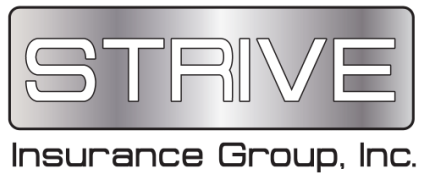

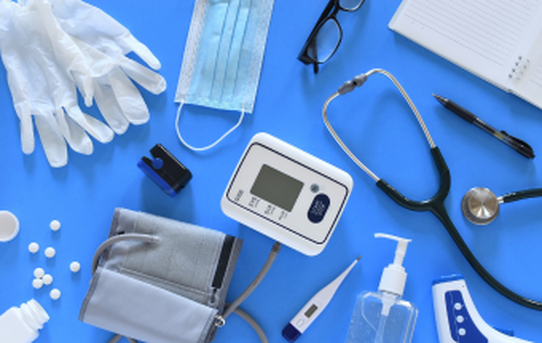
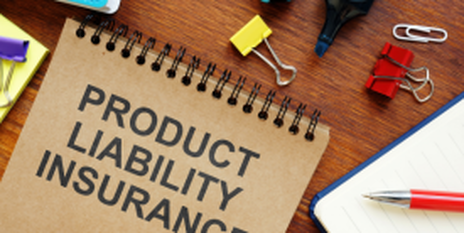
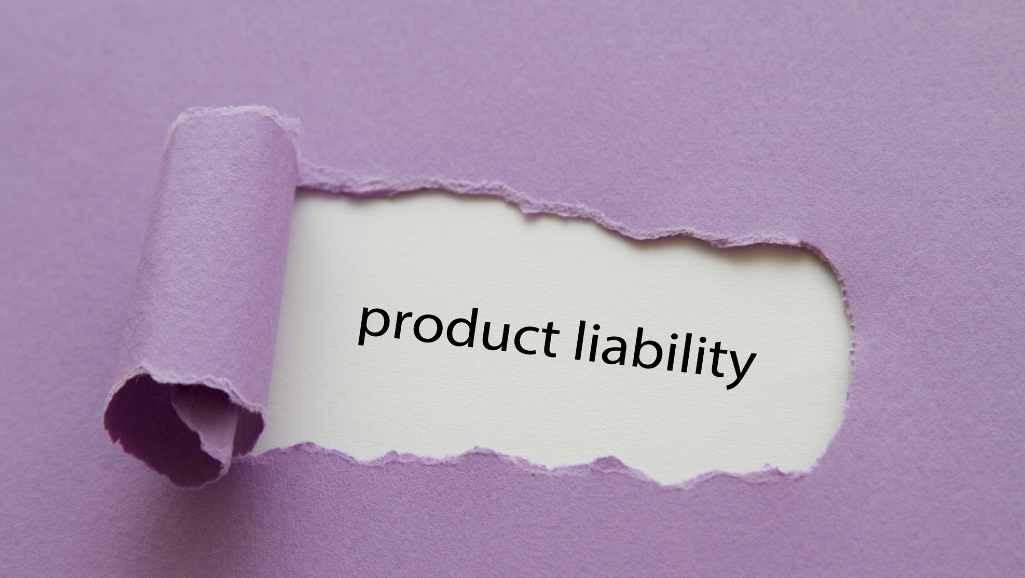

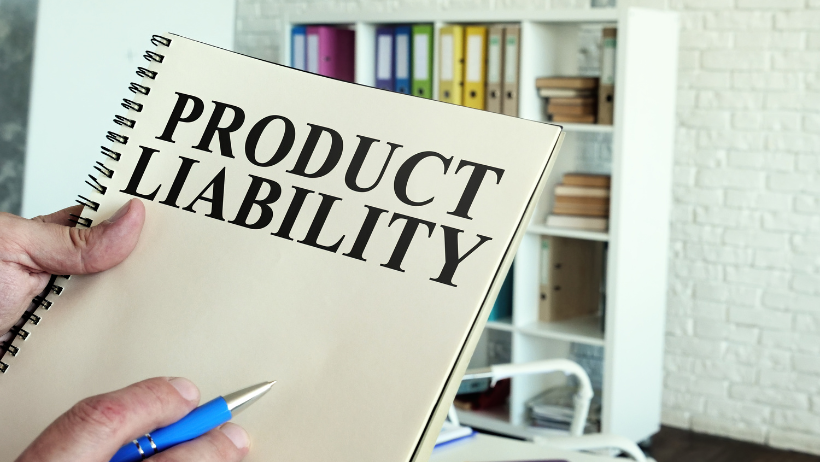

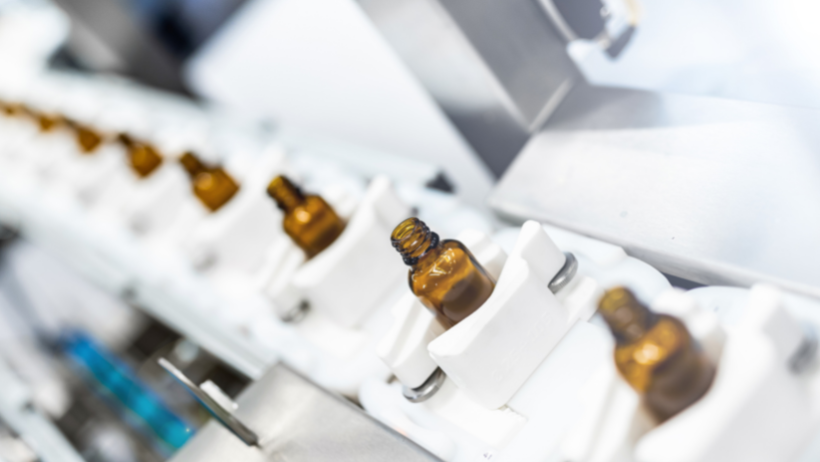

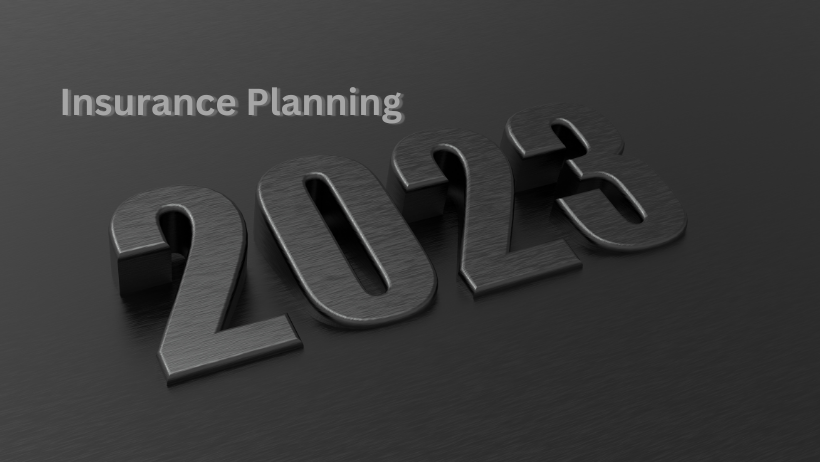
 RSS Feed
RSS Feed
5/22/2024
0 Comments